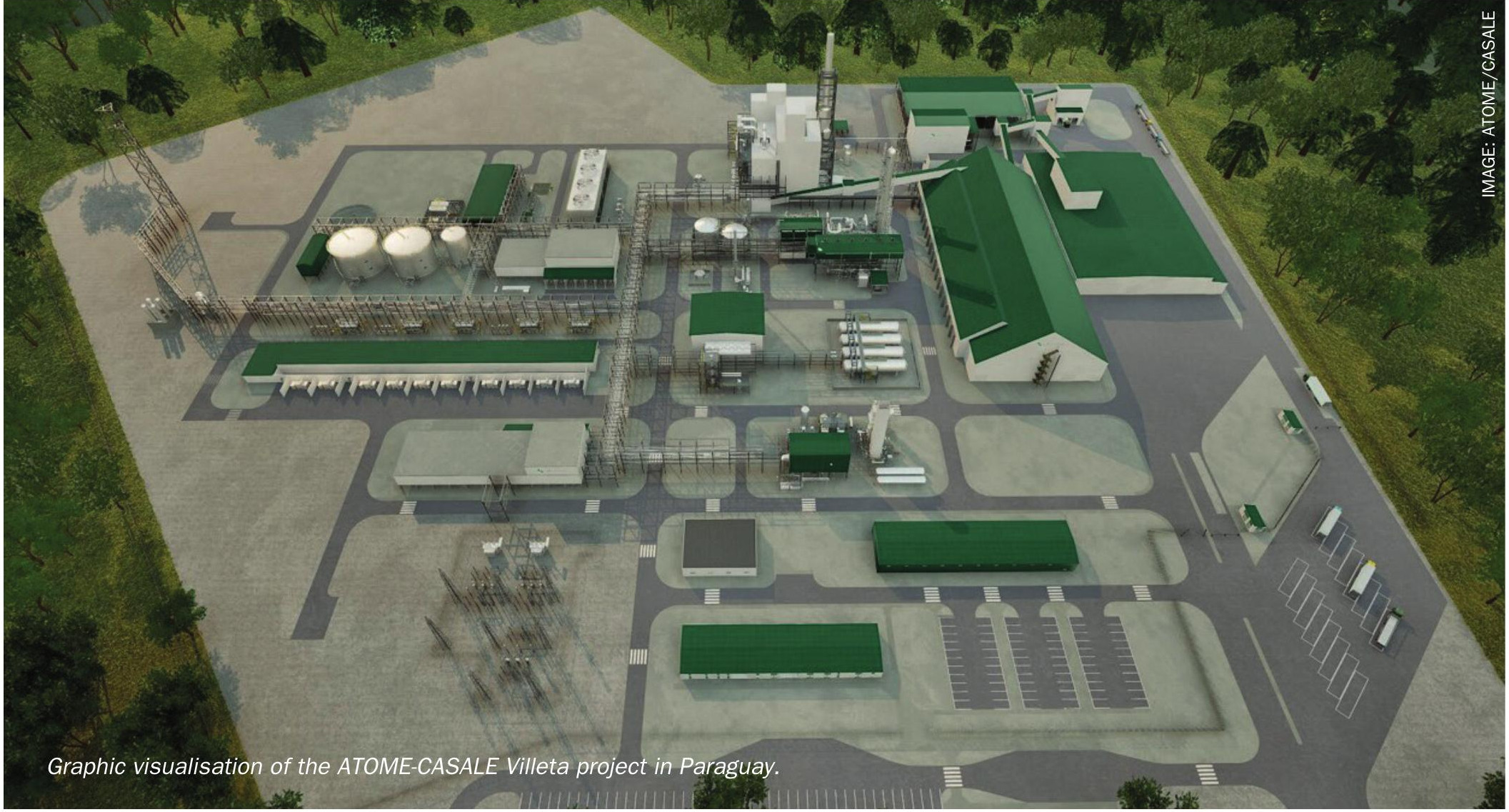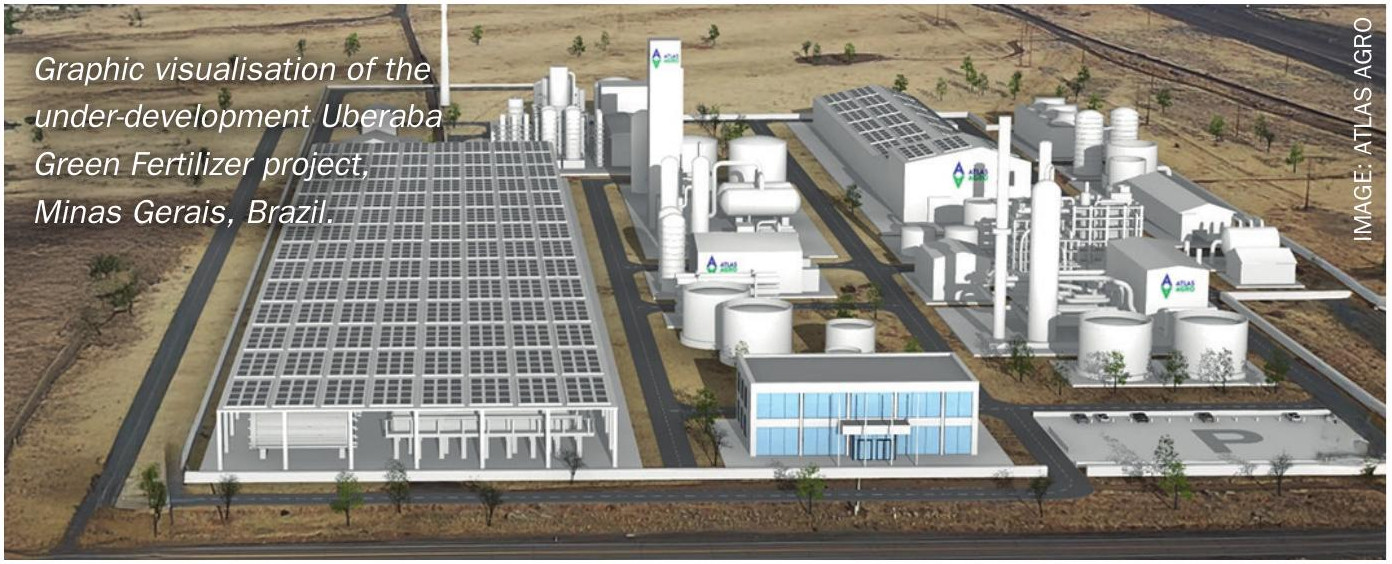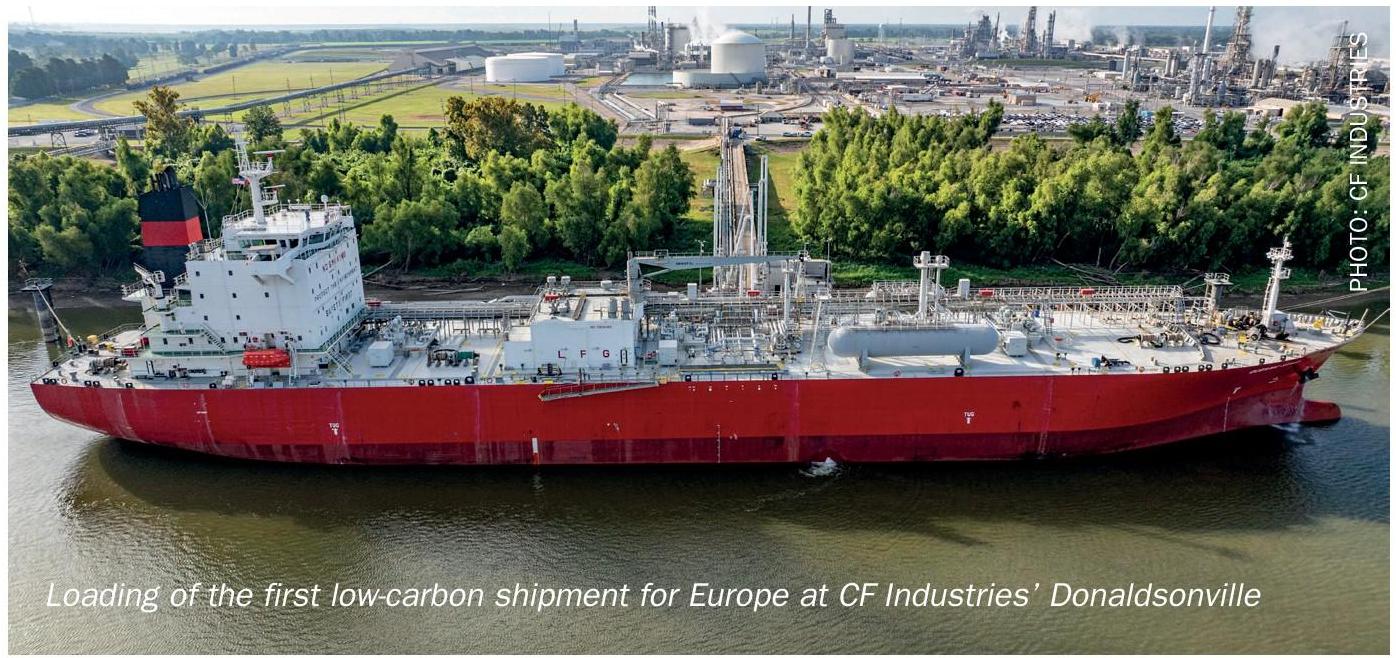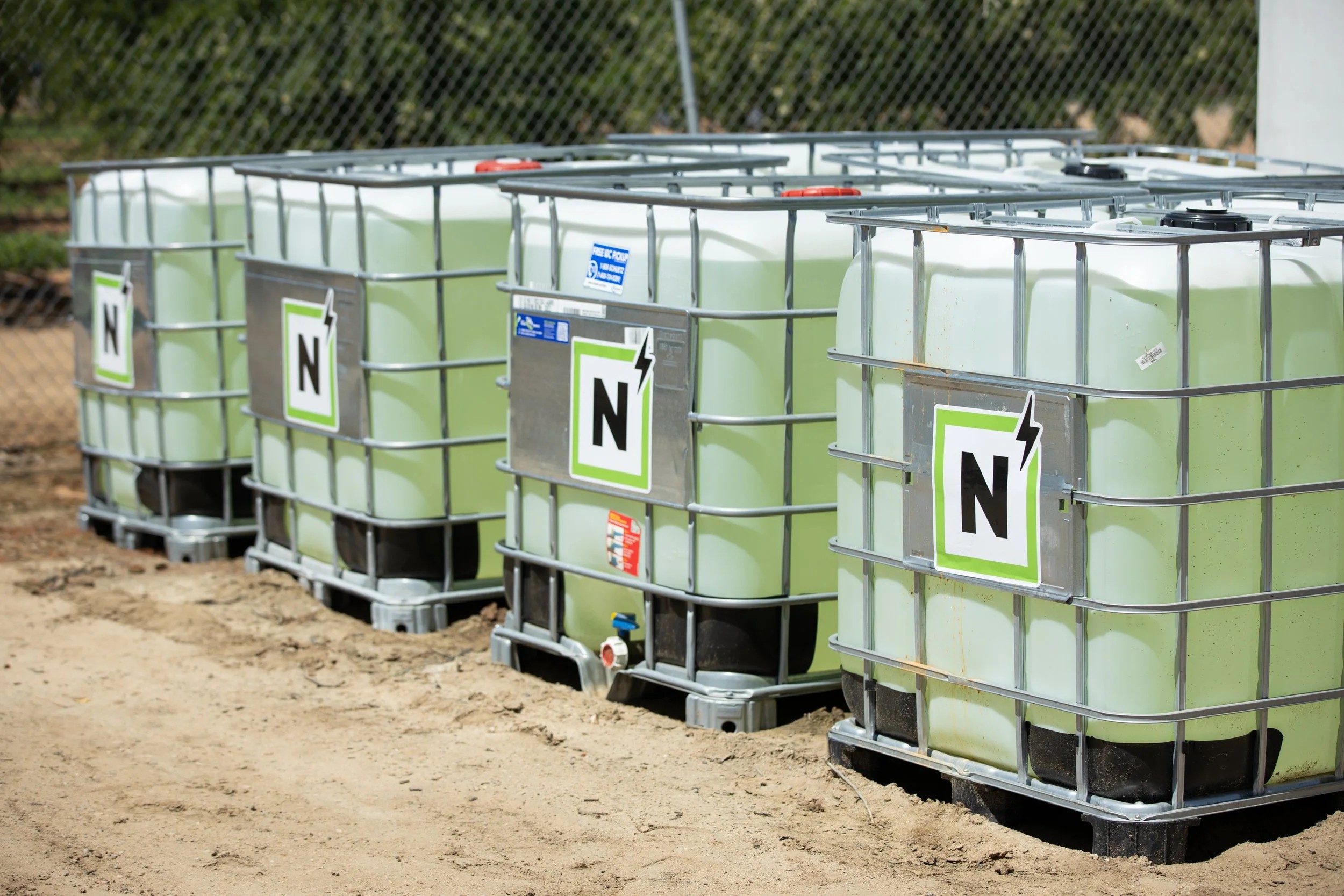Fertilizer International 528 Sep-Oct 2025
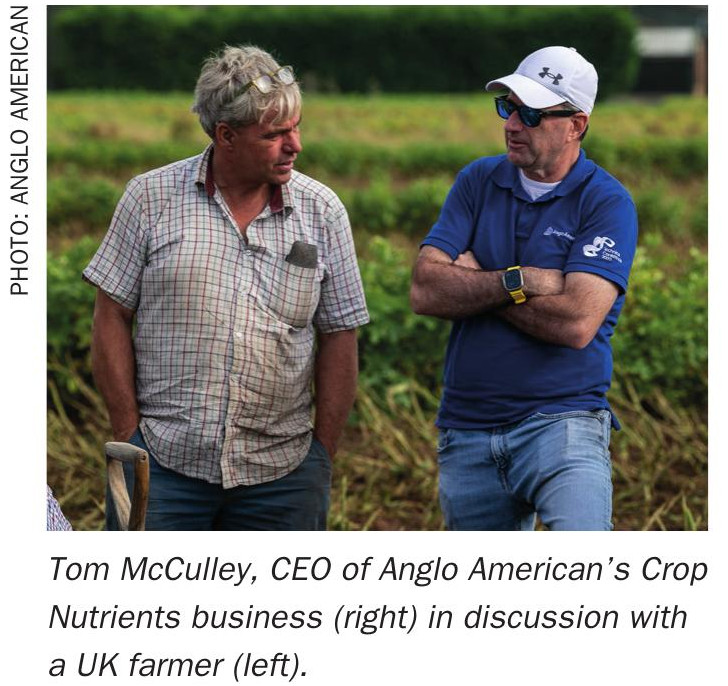
11 September 2025
Collaborate to innovate – Anglo American’s Future of Fertiliser report
SUSTAINABILITY
Collaborate to innovate – Anglo American’s Future of Fertiliser report
The fertilizer industry must collaborate across the whole food value chain to produce the scalable sustainable products that are needed to provide future food security while reducing agriculture’s impact on soils and the wider environment. This is the major recommendation from a group of global agriculture and food chain experts in a report recently published by Anglo American.

The Future of Fertiliser report, commissioned by Anglo American and compiled by Deloitte, interviewed 74 independent agricultural experts from around the world to better understand what needs to change in the industry, if it is to keep successfully feeding the world by 2050. With expertise drawn from academia, government institutions, NGOs, the food and fertilizer industries, as well as farmer themselves, the report is a call to action for the industry to adapt at pace and scale to the productivity and environmental challenges facing it in the coming decades.
The 74 experts envisaged a future in which governments and large companies would increasingly act to address the damage to nature, soil and the environment caused by unbalanced crop nutrition and poor chemical fertilizer practices. Evidence of this shift is already apparent in policies being developed in Europe and China in particular, they said, but also in the growth of regenerative agriculture, carbon farming and biodiversity initiatives in several regions throughout the globe. Scalable improvements in the efficiency, application, delivery and management of fertilizers are therefore urgently needed to keep up with stakeholder expectations and demands.
The report was released ahead of the International Fertilizer Association’s annual conference in Monaco. Its CEO, Alzbeta Klein, when interviewed for the report was asked what she believed the focus of the IFA conference would be in 25 years’ time. She said: “2050 will be more than just a meeting about fertilisers. It will be a global summit on the future of humanity’s relationship with food, nature and technology.”
A new framework for success
To address the need for more scalable, sustainable fertilizers, the report’s experts called for the industry to redefine its metrics for success (Figure 1) – to better manage competing and complex performance demands such as yield, soil health and sustainability. They said that new government regulations and environmental policies, allied to increased access to technology and innovative finance models, would incentivise the uptake of more sustainable practices and products, and that the industry should adapt accordingly.
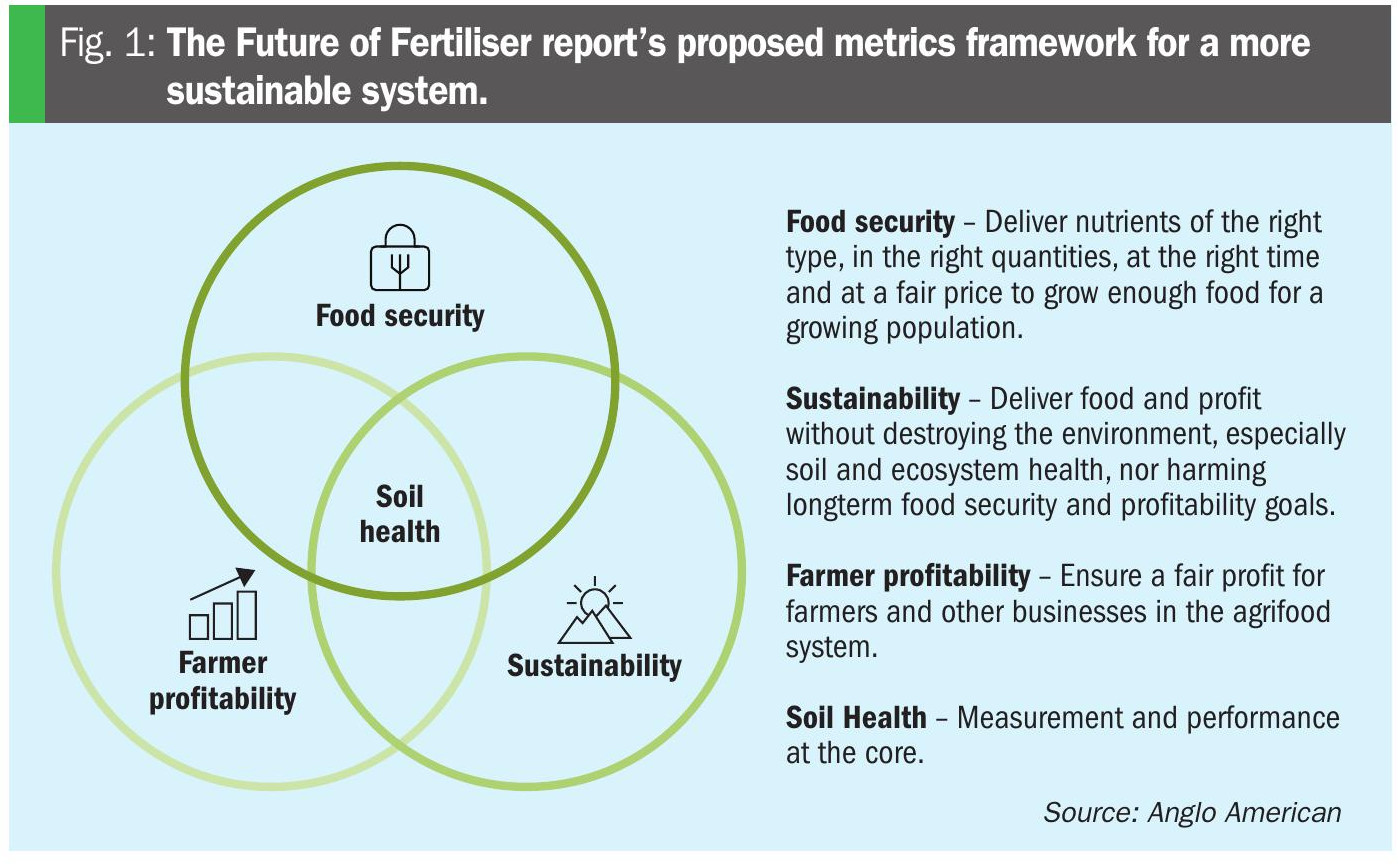
Tom McCulley, CEO of Anglo American’s Crop Nutrients business, said: “There is no doubt in our minds that the future of agriculture has to be different if we are to produce more, better quality food more sustainably than we do today.
“This means that we need to work together across the sector to change the way we do things and find opportunity in this new frontier. We need to stop thinking about crop yields in isolation and create robust collaborative frameworks to measure our impact on issues like soil health, emissions, food nutrient content and nature, and find ways of delivering value for the farmer from them. It is the only way we will be able to successfully meet the growing demand for food while contributing positively to the planet.”
Environmental impact – cost or opportunity?
One of the most eye-catching statements from the panel was a recommendation for the industry to internalise the environmental cost of chemical fertilizers in order to define the real value of sustainable alternatives and incentivise their use, then to collaborate with farmers and other stakeholders in the value chain to drive trust and uptake.
This issue was highlighted by Simon Inglethorpe, editor of Fertilizer International, who, along with other CRU colleagues, was interviewed for the research: “Around 40% of the emissions from a loaf of bread are from the fertiliser used to grow the wheat. Therefore, if food retailers are going to hit their targets for upstream Scope 3 emissions, they’ve got to have partnerships with their fertiliser manufacturer.”
To achieve these sorts of collaborations, scalable crop nutrition solutions that efficiently use available nutrients at a low environmental cost across a broad range of crops and geographies must be developed, the report stated – an important step away from historical wasteful practices, damaged soil and unnecessary emissions. This means that lower carbon footprint fertilizers that can deliver additional nutrient performance, efficiency and additional value to the farmer will come to the fore.
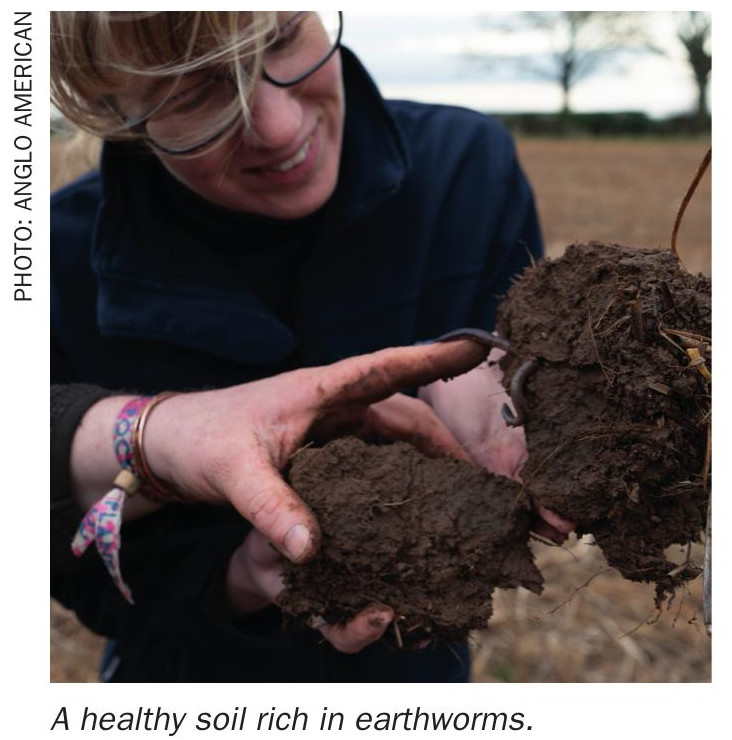
The central role of soil health
The report states that soil health considerations and the value of soils should play a central role in creating the new frameworks and products of the future, to help growers farm as productively, sustainably, and profitably as possible.
Many interviewees cited soil health as intrinsic to ensuring long-term food security, as healthier, more fertile soils are needed to improve crop yields and crop quality. Healthy soils also act as a filter for cleaner water and reduce runoff and erosion, while being vital to the fight against climate change through efficient carbon sequestration and improvements to on-farm biodiversity.
Leading regenerative farmer Ben Taylor-Davies, in his interview for the report, stated: “Everything starts and ends with soil. It’s the start point, the end point and everything in between of profitability, food security, environmental security.”
Future fertilizers and the nutrients they provide, while continuing to underpin agricultural success, the report said, must therefore actively contribute to the preservation of soils and precious natural resources for the long term.
The co-founder of Biome Makers, a soil microbiology analysis company, Alberto Acedo commented: “A sustainable fertiliser is a fertiliser that ensures efficiency of the nutrition of the plant, promotes or conserves biodiversity, and does not produce waste or residues on the land.”
Meeting changing demands
The report states that by embracing these shifts towards more collaborative, sustainable practices, and seizing the opportunities they present, the sector can ensure that future fertilizer practices not only meet the growing demand for food but also contribute positively to the planet and future generations that will demand more and better-quality food.
“The future of fertilisers must be one where crop solutions both nourish people and sustain the planet, building on the incredible successes of food production since the mid-20th century,” commented Duncan Wanblad, Chief Executive of Anglo American, who contributed the forward for the report. “Greater use of sustainable fertilisers has a vital role in increasing crop yield and resilience in parallel with protecting nature and improving soil health. But a future with an abundant, sustainable food system will not happen by accident; we must build it together.”
This sentiment was echoed by all the experts interviewed, who emphasised the need for a greater spirit of collaboration, openness, and humility on the road to 2050. Real progress, they said, hinges on fostering new and genuine partnerships between previously siloed stakeholder groups, to move towards a more resilient and sustainable future.
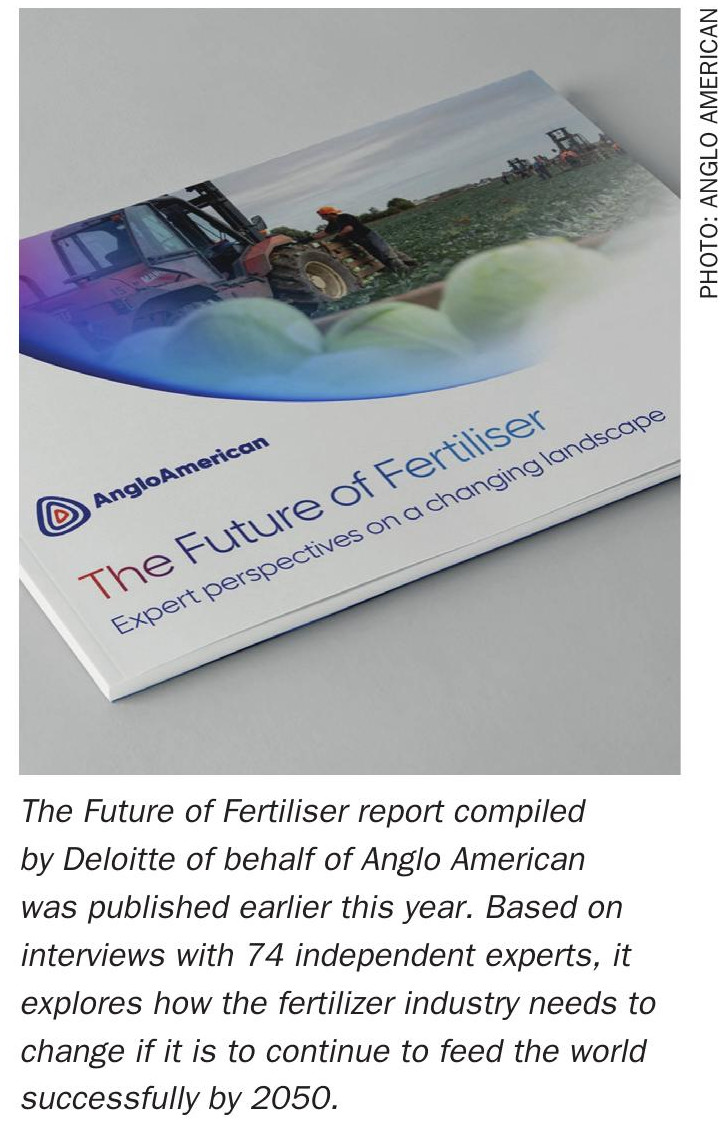
References


